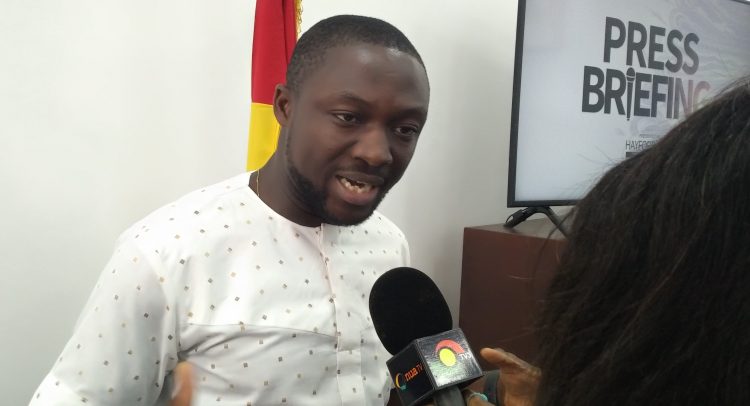Hayford Siaw
The Ghana Library Authority (GHLA) has declared the year 2020 as the year of learning.
The declaration was in line with the 70th anniversary celebration of the organisation which will be held under the theme, “70 Years of Transforming minds through libraries”.
With a proposed budget of GH¢40 million, the year-round activity is aimed at improving the use of technology in library service delivery, increasing content of materials for libraries, boost patronage of public and school libraries, improve accessibility to libraries as well as renovate existing libraries.
The Chief Executive Officer (CEO) of the GHLA, Hayford Siaw who addressed journalist at an end of year briefing said that highlights of the celebration would include launch of the anniversary celebrations, street walks across the country, organisation of personality readings, conference for non-governmental organisations (NGOs) on library development in Ghana and the establishment of an endowment fund.
He anticipated a 20 per cent increase in library book stock during the year, roll-out of a mobile phone application for Senior High Schools (SHS) as well as enrolling of both public and SHS libraries onto the Integrated Library Management System (ILMS).
Speaking about outcomes of the Year of Reading campaign in 2018, Mr Siaw said that a 48.10 per cent annual increment in library visits with improved membership of 12,665 in 2018 to 26,334 in 2019 had been recorded as a result of various interventions initiated by the authority.
He said that about 255,887 new books were added to the library stock while 25 libraries were renovated within the period.
“In introducing new access points for the public to engage with GHLA libraries, we increased our network of libraries by nine from 61 to 70,” he said.
He also talked about the authority’s strategic plan of establishing a library in every constituency which he said would require political commitment as “we want leaders to promise the library authority that when they come into office they will support us.”
He called on philanthropists to duly consult the authority in planning and constructing library facilities for communities in order to guarantee maximum utilisation of such facilities.
“People construct such facilities without consulting us and years down the line the places end up in bad state where communities will be calling on us to take over the place.”
He also warned NGOs and individuals against the fictitious use of the authorities name to carry out their activities.
By Issah Mohammed


